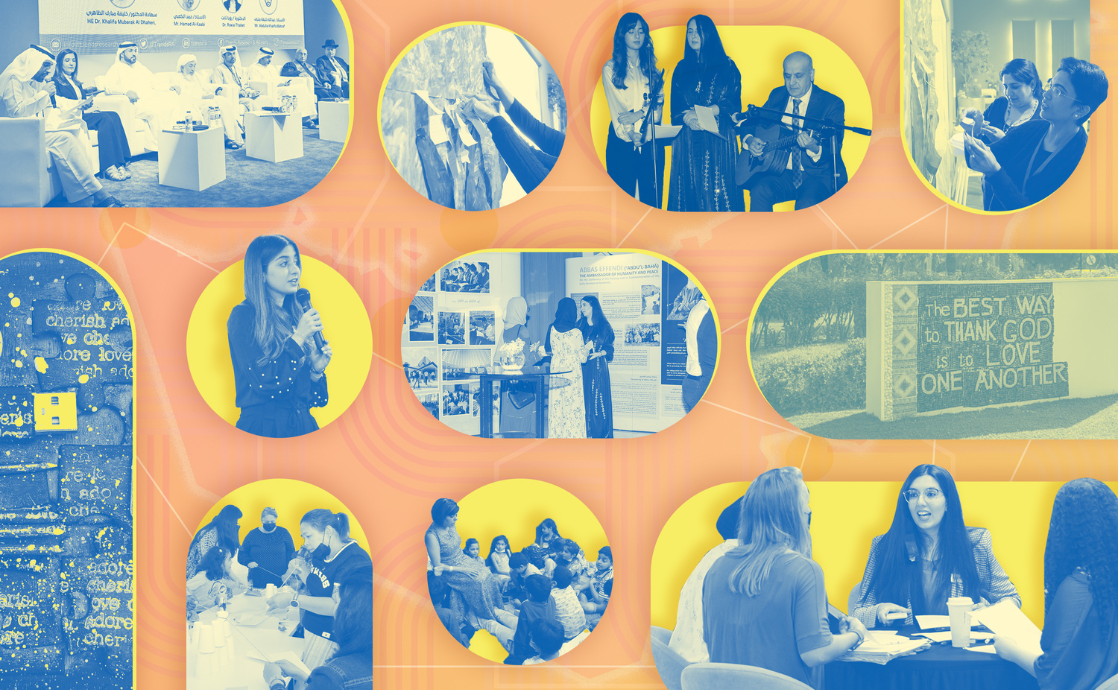The United Arab Emirates (UAE) presents a fascinating case study for delving into the intersection of religion and peace. Nestled in a region often marred by conflict and discord, the UAE epitomizes a paradigm of coexistence and collaboration among diverse faiths. The Baha’i teachings offer a profound lens through which one can examine the role of religion in fostering tranquility and understanding. This exploration promises not only a shift in perspective but also piques curiosity regarding the potential of spiritual principles in navigating contemporary societal challenges.
At the core of Baha’i teachings lies a profound belief in the oneness of humanity, an idea that transcends cultural, ethnic, and religious divisions. This fundamental tenet is particularly poignant in the context of the UAE, where an eclectic tapestry of nationalities coexist. The Baha’i Faith advocates that all religions stem from the same divine source and ultimately aim towards the same truth. This perspective encourages mutual respect and understanding among various faith communities, promoting an environment where dialogue can flourish. In a country marked by a diversity of beliefs, this principle is paramount in constructing a harmonious society.
Furthermore, the Baha’i teachings extol the virtues of justice and equity, positioning these as essential elements for enduring peace. The UAE has made commendable strides in enhancing social justice and gender equality, with women’s participation in various sectors being particularly noteworthy. By integrating the Baha’i principles of justice into public policy, the UAE not only fosters inclusive development but also harvests the fruits of a more tranquil society. Justice is not merely a legal concept; it is a moral imperative that embodies a commitment to uphold the rights and dignity of every individual, reinforcing the social fabric of the nation.
Another critical aspect is the role of education in mitigating ignorance—a significant precursor to conflict. The Baha’i teachings underscore that the foundation of a peaceful society rests upon the bedrock of universal education. In the UAE, substantial investments in education have facilitated a higher literacy rate and a more informed populace. This commitment to learning cultivates an environment where individuals can reflect upon diverse perspectives. More importantly, it fosters critical thinking, empowering citizens to engage in constructive discourse rather than divisive rhetoric. Education, therefore, becomes a powerful tool for peacebuilding in this multifaceted society.
The UAE’s national Vision 2021 embodies a strategic initiative towards fostering peace and tolerance. This vision aligns closely with Baha’i teachings that advocate for the elimination of prejudices and the promotion of unity amidst diversity. Initiatives aimed at nurturing interfaith dialogue have emerged in recent years, gathering leaders and practitioners from various religious backgrounds to engage in meaningful conversations. These dialogues serve as bridges, enhancing understanding while dismantling stereotypes and fostering empathy—a crucial antidote to societal discord.
Moreover, the Baha’i approach emphasizes the importance of community building as a mechanism for establishing peaceful coexistence. Local communities are viewed as integral units in the promotion of collective well-being. In the UAE, community centers serve as crucibles for social interaction, where individuals can engage in activities designed to strengthen communal bonds. Through shared experiences, citizens develop a sense of belonging and responsibility towards one another, mitigating the risks of isolation and alienation. As individuals work collaboratively within their communities, they begin to recognize the value of peace in ensuring their collective prosperity.
The relevance of spiritual growth cannot be understated in the context of peacebuilding. Baha’i teachings advocate for personal transformation as a critical component of creating a more peaceful society. This internal journey encourages individuals to cultivate virtues such as love, compassion, and forgiveness, which are central to fostering harmonious relations. As individuals embark on their spiritual paths, they often experience profound transformations that influence their interactions with others. This grassroots movement towards self-improvement and moral development inevitably contributes to a more peaceful collective consciousness.
Instances of interfaith initiatives in the UAE underscore the tangible impact of the Baha’i principles in fostering peace. The establishment of the Abrahamic Family House, a multi-religious complex, exemplifies a significant commitment to promoting inter-religious understanding and cooperation. Such projects are testament to the UAE’s dedication to ensuring that all religious communities not only coexist but also thrive together. As the Baha’i Faith calls for the unification of all humanity, initiatives like these materialize this vision into actionable reality.
In conclusion, the examination of religion’s role in fostering peace within the context of the United Arab Emirates illuminates the profound implications of the Baha’i teachings. By embracing the principles of unity, justice, education, community building, and personal transformation, the UAE serves as a global beacon of hope in an often tumultuous world. The deliberate promotion of interfaith dialogue and inclusive development reflects a commitment to transcending differences and celebrating shared humanity. The discourse surrounding religion and peace is far from exhausted, and as efforts continue to unravel the complexities of this relationship, the UAE stands as a promising exemplar of a society where faith is harmoniously integrated into the fabric of daily life, thus embodying the potential for peace in an intricate world.
